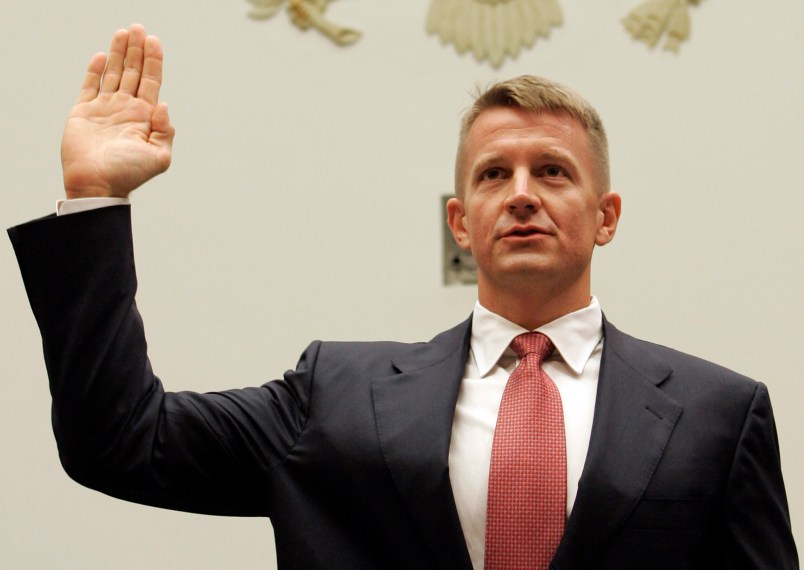From TPM Reader RM …
The one thing I think your piece needs to address is the personal interests or motivations for pushing rapprochement with Russia. We should keep in mind that the GOP’s position on Russia underwent a radical shift from hawkish to fawning. Had any other person won the GOP nomination, the position on Russia would’ve been as skeptical as that of the Obama Administration and maybe even more hawkish (particularly if former Romney advisors had influence on a hypothetical non-Trump nominee).
Most every single advocate of this radical shift towards Russia had a financial interest or inducement to do so. People like Flynn and Erik Prince have stated that a push against ‘radical Islam’ makes Russia a natural ally thereby justifying rapprochement, but this seems like utter bullshit when one considers that Iran is a key ally of Russia, and Russia’s positioning in Syria is ISIS friendly. Flynn became pro-Russia because they bought his allegiance with thousands of dollars of consulting business. Erik Prince is more aligned with Russia because he was effectively blacklisted by the Obama Administration post-Blackwater scandal. In the case of less prominent folks like Sam Clovis, one must examine the Russia issue as a product of Russian active measures through their media influence, and political motivation. Such a position allowed them to distinguish themselves from other Republicans and provide justification for a more insular and skeptical look at a world in far right conservatives fear that whites are diminishing in power and political influence.
As I explained in my private response, I don’t think the idea of allying with Russia against radical Islamists is totally crazy. Russia, like the Assad government, may have some situational need for ISIS as a justification for the severity of their crackdown on militants. But fundamentally, Russia is pro-Assad. In the post-Cold War period that is fundamentally based on making an alliance with minority sectarian groups in the Middle East since the dominant power in the region is the US and the US is allied to the dominant Arab Sunni governments. This brief overview skips volumes of complexity. But it’s fundamentally accurate. Right wingers like those in the Trump administration may see Iran as indistinguishable from Sunni radicals as another part of “radical Islam”. I don’t think that is an accurate view.
For all these reasons, I don’t think the idea of collaborating with Russia against Islamic radicalism is crazy on its face. I do think it’s basically misguided for a number of reasons – not least of which is that I don’t think it would be terribly effective. But RM is right on target on the larger point of the massive shift in GOP thinking on this issue. He is particularly on target about Erik Prince. That’s the reason I’m highlighting RM’s note.
I don’t know how big a role Prince plays in the larger Russia story. But he and his various companies, whatever name they’re now operating under, are a dangerous and malevolent force in our current moment, even more than they were a dozen years ago when Blackwater was playing such a big role in America’s wars in Afghanistan and Iraq. As RM noted, because of Blackwater’s scandals and also because of the Obama administration (but not only the Obama administration, later Bush too), Prince’s ability to sell his mercenary services to the US government and military were severely reduced. So he’s looked abroad. He’s trying to put together a major effort in China. He has deep business relationships in the Gulf and even lived there for a time in part to keep a distance from US authorities. He is clearly on the lookout for business with Russia. Whatever he denied in his recent congressional testimony, they’re a potential client.
Then you had this amazing report from The Intercept a couple days ago about Prince pitching the Trump White House on setting up a parallel spy network reporting directly to the President and the CIA Director to go around the President’s “deep state” enemies.
This may sound weird and scary. I’d argue it’s weirder and scarier than it sounds. This is precisely the kind of stuff Prince has always been trying to do – use ex-military and intelligence operatives to build parallel national security forces that operate for profit and outside the rule of law. In this case, he has a President who is particularly, perhaps uniquely, open to that idea. He’s also clearly pitching his plans to his potential client’s mix of paranoia and mendacious blame-shifting. The world of military contracting long predates Trump and Prince, as have its inherent challenges to accountability and democratic governance. There are many different factors pushing in money in the direction of privatizing military and national security services. But few Presidents would find the attractions, both for evading the law and for acting with quasi-dictatorial power, more inviting than Donald Trump.
With his mix of post-national allegiance, hyper-authoritarian views and need for new clients, we need to keep a very close eye on Prince, both in terms of the Russia probe and also more generally.






